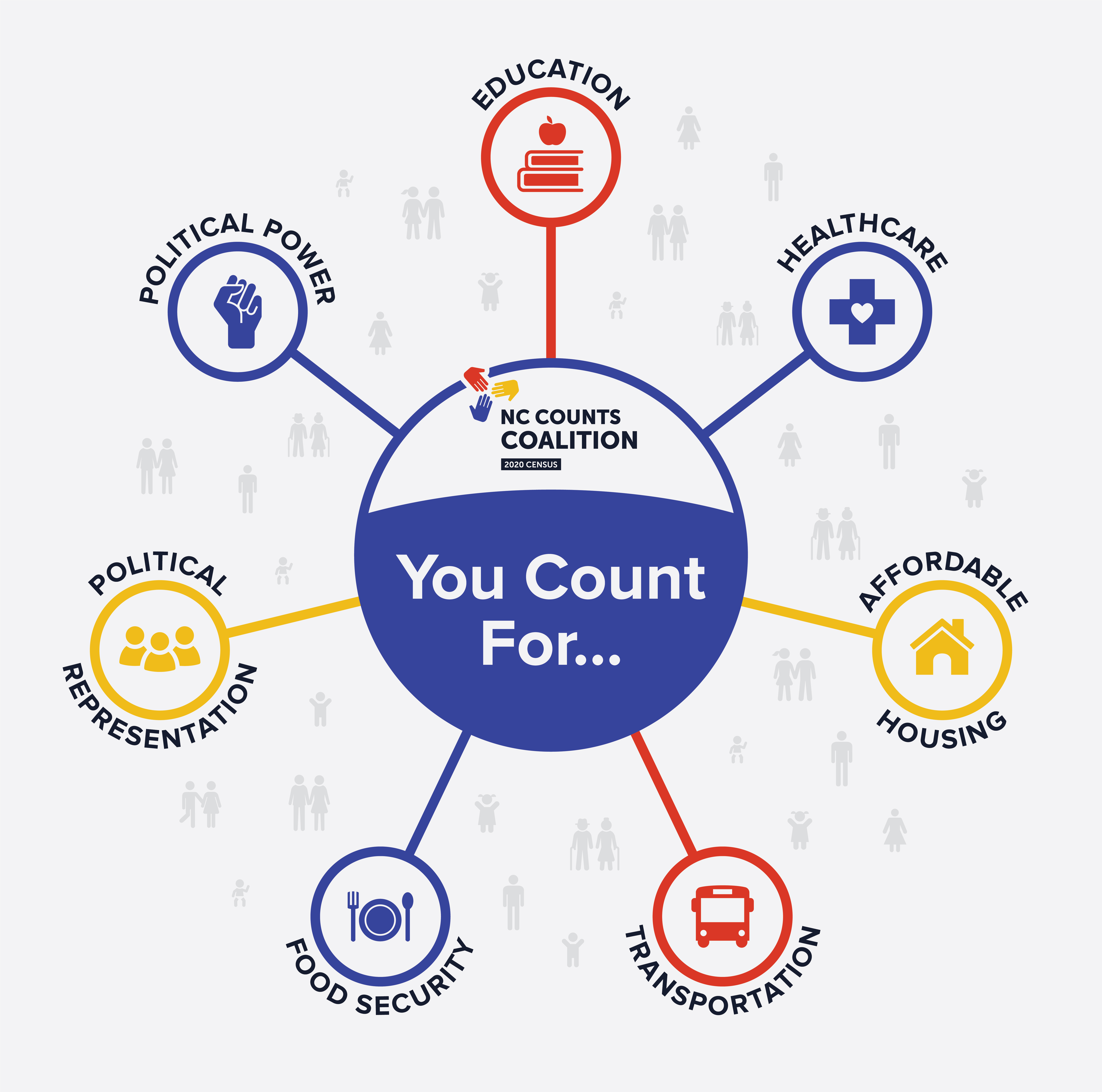

Once every 10 years, on April 1, you and every person in your household counts in the Census to shape North Carolina’s future. The Census is a questionnaire that counts of every single person living in the United States on April 1, 2020, regardless of immigration status, housing status or age. Everyone Counts!
It’s estimated that for every person who goes uncounted in North Carolina, the state will lose $1,600 every year in funding. That is $16,000 per person over 10 years. That adds up to a lot of money for our communities for critical services like health care, Head Start program slots, highways, roads and bridges, Medicaid, and more.
You and every person residing in your household count to make sure North Carolina receives its fair share of more than $1.504 trillion in federal funding allocated to states. For every person young or old who is counted, North Carolina receives more than $1,600.00, which adds up to $23 billion a year in federal funding for programs each year for education, transportation and social welfare programs.
You and every person residing in your household count to bring services and government resources to our communities. Census data provides key decision-makers with the information they need to ensure that government resources are directed strategically to North Carolina communities. Census data is also critical for helping companies determine where to open a new store, where quality employees are located, and what services and products to offer. Without census information, businesses would be left guessing.
You and every person residing in your household count for fair political representation and power.
Census data determines the number of seats each state occupies in the House of Representatives. North Carolina is projected to gain a seat in the House of Representatives, making our state more influential in Congress by increasing our representation from 13 to 14 representatives. Census data also guides redistricting from political districts to school zones.
Your answers to the Census are private, confidential, and protected by federal law. No court of law, no welfare or immigration agency, not even the FBI, can see what you say.
Did you know…
The Census undercounts certain populations, referred to by the Census Bureau as ‘hard-to-count.’ A population may be undercounted because of:
- Lack of internet access when the Census is relying on self-response on the internet as the primary form of data collection for the 2020 Census
- Concerns of confidentiality
- Distrust of government
- Misunderstanding of who should be counted in the Census
- Lack of stability in living arrangements
- Language barriers
Populations historically missed by the Census are immigrants, people of color, young children (0-6 years), renters, low income people, undocumented persons or people who move around a lot.
If these populations are miscounted, they risk losing funding and resources for their communities, and an opportunity for fair representation in government.

